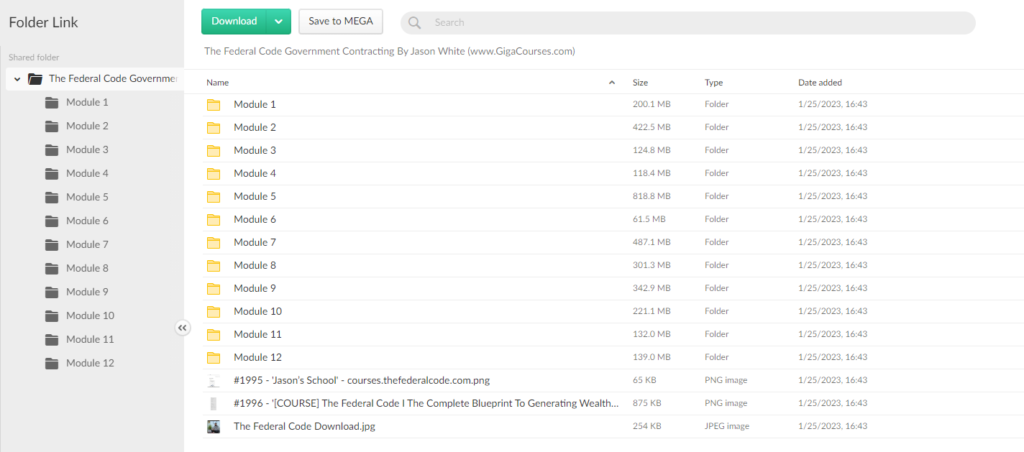Description
Download Proof | The Federal Code Government Contracting By Jason White (3.29 GB)
![]()
The Federal Code Government Contracting By Jason White
Title: The Federal Code in Government Contracting by Jason White
Introduction: Government contracting is a complex and highly regulated field, and understanding the Federal Code is crucial for successful navigation. Jason White, an experienced professional in government contracting, sheds light on key aspects of the Federal Code that contractors must grasp to ensure compliance and success in this challenging arena.
Understanding the Federal Code: Jason White emphasizes the importance of a comprehensive understanding of the Federal Code, which serves as the foundation for government contracting. The Federal Code encompasses a vast array of regulations, statutes, and guidelines that govern every aspect of the contracting process. Contractors need to be well-versed in the Federal Acquisition Regulation (FAR), which acts as a primary source of procurement rules for federal agencies.
Compliance and Ethics: White underscores the significance of compliance and ethical conduct in government contracting. Contractors are subject to stringent rules and regulations to maintain integrity and fairness in the procurement process. The Federal Code places a strong emphasis on ethical behavior, prohibiting activities such as fraud, bribery, and conflicts of interest. Jason White highlights the importance of establishing a robust compliance program to mitigate risks and ensure adherence to ethical standards.
Contract Formation and Administration: Contract formation and administration are critical phases in government contracting, and the Federal Code plays a pivotal role in guiding these processes. White discusses the importance of understanding the Federal Code’s provisions related to contract formation, including the solicitation and evaluation of bids, contract types, and negotiation procedures. Additionally, he emphasizes the significance of effective contract administration, stressing that contractors must comply with the terms and conditions specified in the contract throughout its lifecycle.
Small Business Programs: Jason White recognizes the significance of small businesses in government contracting and explores the relevant provisions within the Federal Code. The government actively promotes the participation of small businesses through various programs, such as set-asides, subcontracting goals, and mentor-protege initiatives. White encourages contractors to explore these opportunities and leverage the Federal Code to enhance their competitiveness in the market.
Cost Accounting and Pricing: Cost accounting and pricing are intricate aspects of government contracting, and adherence to the Federal Code is crucial for success in these areas. White delves into the complexities of cost accounting standards and the Truth in Negotiations Act (TINA), emphasizing the need for accurate and transparent pricing. Contractors must align their practices with the Federal Code to ensure compliance and avoid potential legal issues.
Conclusion: In conclusion, Jason White provides valuable insights into the intricate world of government contracting by highlighting key aspects of the Federal Code. Contractors must prioritize a comprehensive understanding of the Federal Code to navigate the complexities of procurement, maintain ethical standards, and foster success in this highly regulated environment. By adhering to the principles outlined in the Federal Code, contractors can position themselves for growth and sustainability in the competitive landscape of government contracting.
















